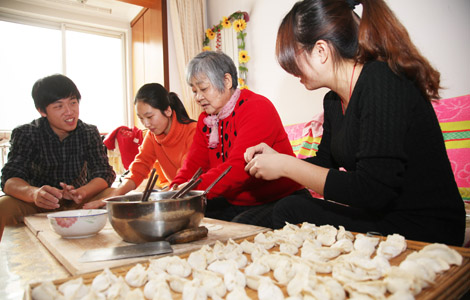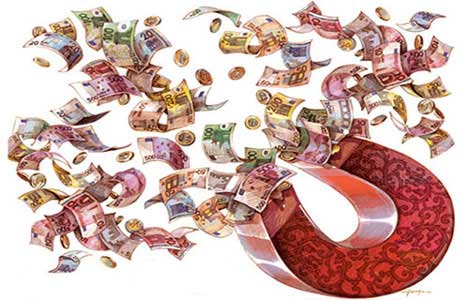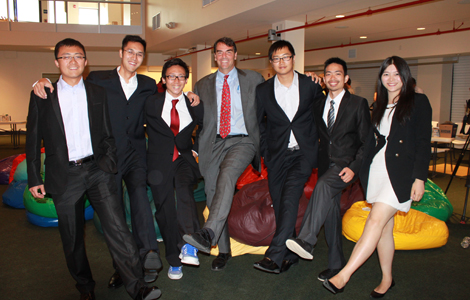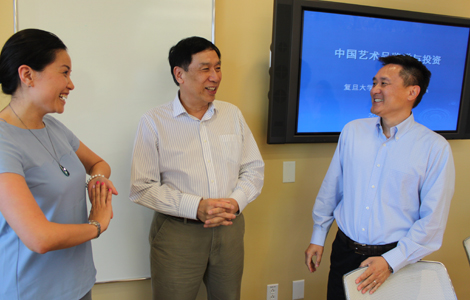Settlement of China-EU solar row speaks volumes
Updated: 2013-08-06 13:21
(chinadaily.com.cn)
|
||||||||
Chen Xin, director of the economics department in the Chinese Academy of Social Sciences Institute of Europe
China's high-level communication played a key role in solving the China-EU photovoltaic trade dispute quickly as the dispute has thus been highlighted. On the other hand, however, it reflects the lack of a communication platform, especially in economic trade. The case signals the necessity of exploring new mechanisms to avoid possible trade wars. Both sides should be able to communicate fully before going through a trade remedy in order to achieve a win-win result in solving trade disputes in the future. It's unnecessary to involve Chinese top officials in solving all trade disputes, wine being one example
The settlement of the photovoltaic case has had a significant impact. The photovoltaic case reflects the fact that the economic interdependence between China and the EU, particularly in some industries, is deepening. The photovoltaic dispute is a typical example. The two sides are largely interdependent on each other, which explains why there were a lot of voices inside the EU opposing the solar trade dispute. The voices facilitated the agreement on solar panel sales. Most member countries showed their negative views during the pre-voting of the European Commission, with the result of four in favor, five abstentions and 18 against. A minority of voters were fully supportive of punitive duties on Chinese solar products, which imposed a great deal of pressure upon the European Commission.
The trend of trade frictions between China and the EU: The bilateral trade volume is considerably big as the EU is China's second largest export market and the largest import market. This makes trade frictions inevitable. But the key is how to deal with these disputes. The settlement of the solar row enabled both sides to communicate well with each other at various levels, thus easing frictions to a certain degree. But I am not quite optimistic of the future of China-EU trade conflicts. The EU believes it is sticking to free trade rules and an open market, but the Chinese market has yet to live up to its expectations because its exports to China are somehow hindered. So the EU believes hat the only way to successfully tap the Chinese market is by suppressing China.
The Chinese market is very important to the EU, as the country is now dedicated to boosting its domestic consumption. The bloc is desperate to take this window of opportunity. But more should be factored in solving the solar trade dispute. Karel De Gucht approved to set up the Bilateral Investment Treaty as he was attending the China-EU mixed committee in Beijing in June. The range of the treaty was very wide, including many issues such as market access. It was a vital replacement of interests for De Gucht, and it played a key role in solving the case.
The EU definitely intends to avoid a trade war. But it hopes to achieve its own goals at the same time. China also wishes to prevent a trade war. China has more countermeasure options available, except for the two used in polysilicon and wine.

 First taste of test-tube burger close to meat
First taste of test-tube burger close to meat
 Govt urged to take care of parents who lose child
Govt urged to take care of parents who lose child
 1 dead, dozens injured in Urumqi bus fire
1 dead, dozens injured in Urumqi bus fire
 Lei Feng's African brother
Lei Feng's African brother
 EU SMEs target niche markets in China
EU SMEs target niche markets in China
 British couple caring for special children
British couple caring for special children
 Fly for adventure at US air show
Fly for adventure at US air show
 Kobe Byrant meets fans in Shenzhen
Kobe Byrant meets fans in Shenzhen
Most Viewed
Editor's Picks

|

|

|

|

|

|
Today's Top News
Dialogue defuses EU, China solar case
Drifting left, Asian American voters still back John Liu
Beijing sincere on S China Sea Code of Conduct
Washington Post sold to Amazon's founder
Fonterra says sorry for 'anxiety'
Obesity rate on the increase
Detroit Symphony brings China to NYC
Service sector drives up growth
US Weekly

|

|





